election2016
Latest
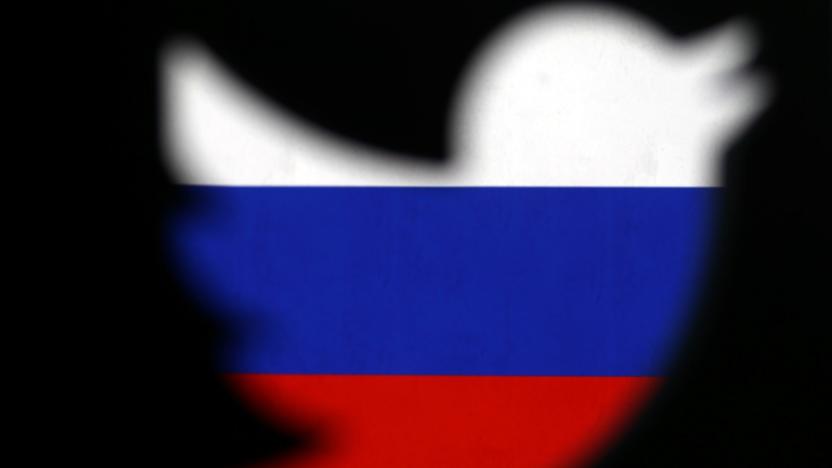
Twitter offered Russian media outlet 15 percent of its election ads
Twitter may have just given the boot to ads from Russia-backed media outlets, but it wasn't quite so discerning in 2016. BuzzFeed News has obtained email showing that Twitter offered Russia Today up to 15 percent of its US election ad volume in June of last year. This wouldn't have been nearly as large as Fox's ad buy (32 percent) or CNN's (56 percent), but there's a real chance you would have noticed... had it gone through. While it's not clear whether the reach or the $3 million price tag influenced the decision, RT turned the offer down.

Facebook exposed 126 million Americans to Russia-linked pages
Russian attempts to skew the 2016 US election through Facebook reached much, much further than first thought. Numerous publications (including Axios, NBC News and the New York Times) have obtained Facebook's prepared testimony for the Senate, which reveals that Russia-linked pages reached 126 million American users between January 2015 and August 2017. That's over half of the social network's US base, for those keeping track. About 80,000 pieces of divisive material were shown to 29 million users whose likes, shares and follows spread the content to many more people.

Facebook and Google reportedly helped set up anti-Muslim election ads (updated)
It looks like Russia wasn't the only one buying ads online to help sway the election last year. Facebook and Google worked closely with conservative non-profit Secure America Now and advertising firm Harris Media on ad campaigns targeting swing state voters with anti-Muslim and anti-refugee messages, and linking Democratic candidates to terrorists, according to a report from Bloomberg. "Unlike Russian efforts to secretly influence the 2016 election via social media, this American-led campaign was aided by direct collaboration with employees of Facebook and Google," the publication says.
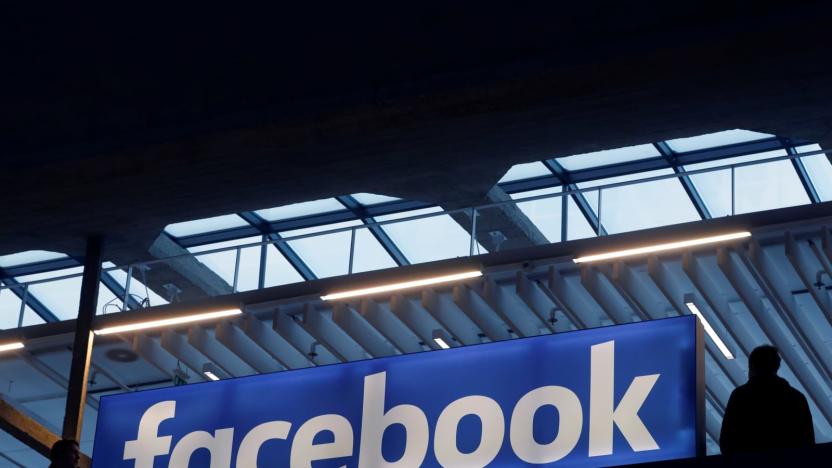
Facebook trying to find employees with national security clearance
Facebook's next attempt at clearing its name from any future political entanglements is apparently hiring people with national security clearances, according to Bloomberg. "Facebook plans to use these people -- and their ability to receive government information about potential threats -- in the company's attempt to search more proactively for questionable social media," the publication's source says. It makes sense, and given the role the social network played in he 2016 election, is a smart move.
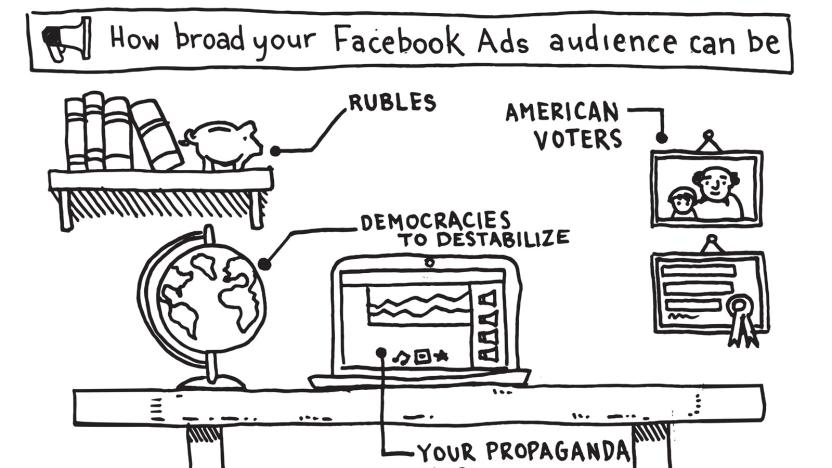
What if Russian voter hacks were just part of its Facebook ad campaign?
This week's news that Russian Facebook ads targeted crucial swing states in the 2016 election changes what we know about the voter databases and software systems that were hacked into by Russian military intelligence in key battleground states. News that electronic election systems were hacked by Russian agents prior to the election hit headlines in June. But this was before Facebook was forced to admit that Russian political ads were used to influence voters thanks to the company's sniper-like ad-targeting precision.
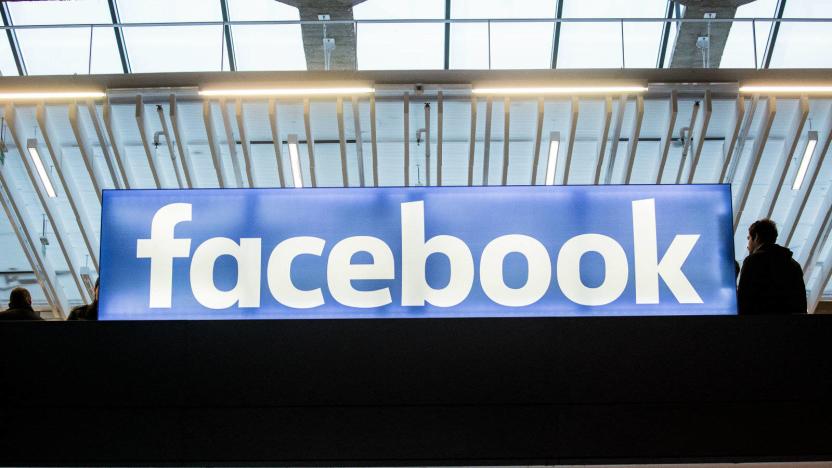
Russian Facebook ads reportedly targeted crucial swing states
More details are emerging about the Russia-linked ads Facebook handed over to Congressional investigators just days ago. According to multiple sources who spoke to CNN, a number of the paid posts specifically targeted two states that were crucial to Trump's victory in November: Michigan and Wisconsin. Facebook has already revealed that the 3,000 ads (viewed by roughly 10 million people) focused on "divisive social political messages," including issues about race, LGBT topics, immigration, and gun rights. But, the latest info sheds light on the geographic and demographical targeting of the promotional messages -- two aspects Facebook has not discussed in detail.
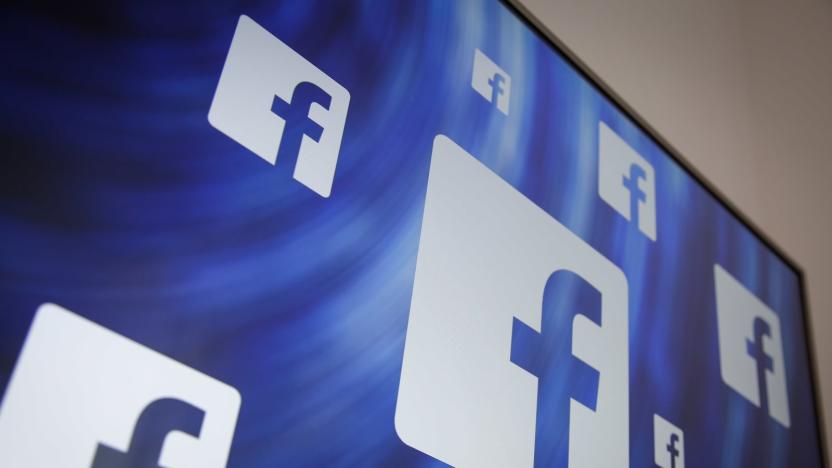
Russia-linked Facebook ads sought to exploit US social divisions
There's been a lot of fuss over a Russian group buying Facebook ads in the run-up to the 2016 presidential election, to the point where it's handing the ads to Congress as it investigates the scope of Russia's influence campaign. But what's in those ads, exactly? We might have a better idea. Washington Post sources say that the 3,000 ads headed to Congress were built to exploit American social divisions. Some championed activist groups like Black Lives Matter, while others portrayed them as existential threats. Others aimed to split opinions through hot-button issues like Islam, LGBT rights, gun rights and immigration.
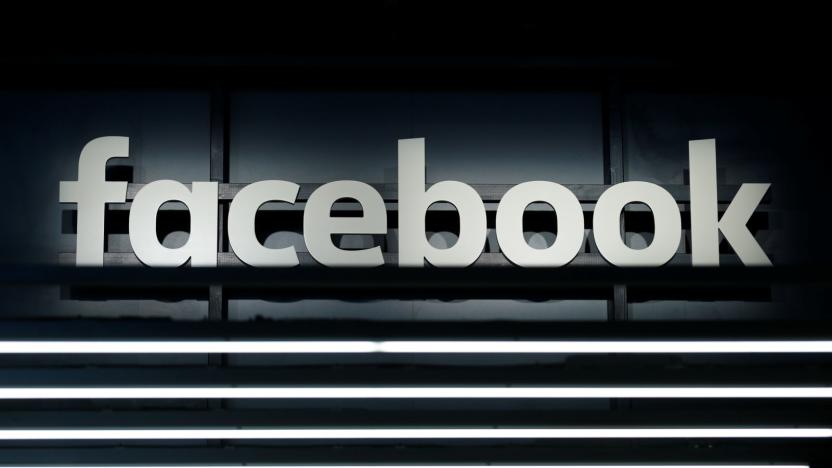
Facebook moderators were reportedly not prepared to catch Russian ads
Facebook's admission that Russian-linked advertisers spent $100,000 on ads leading up to and after the 2016 presidential election has led to serious questions about their effects. But how did they make it through the social network's filters? Four anonymous advertisement monitors explained to The Verge that, as contractors handling hundreds to thousands of ad parts per day, they weren't adequately prepared to screen the propaganda and keep it off the site.
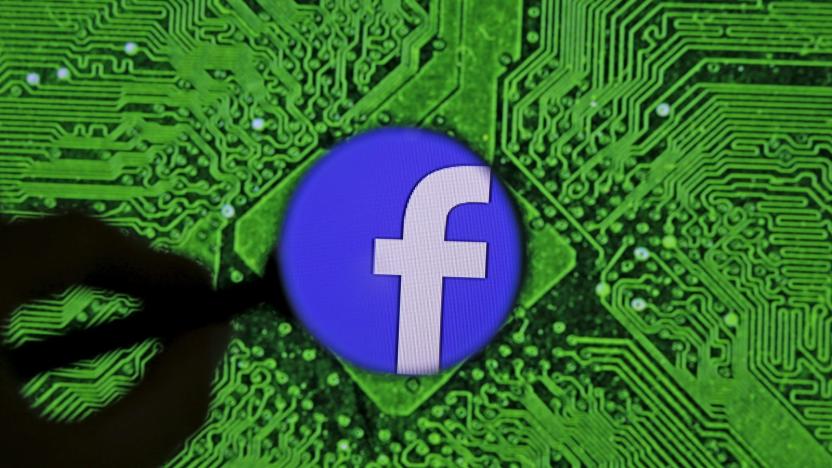
Facebook hands Russia-backed ads to election investigators
Those Russia-linked Facebook ads are more than just a reason for concern -- they could play an important role in one of the largest investigations in recent memory. CNN sources understand that Facebook has supplied the ads and "related information" to special counsel Robert Mueller and team after they obtained a search warrant. The move will theoretically help Mueller's investigative team find out who was behind the ads and whether or not they played a role in Russia's bid to skew the 2016 US presidential election. And reportedly, this only comes after other attempts to get the info fell flat.

States still don't know if Russians hacked their voting systems
With reports of Russians conducting wide-scale hacking campaigns against US election systems in 2016, you'd think that the individual states would know whether or not their voting systems had come under fire. However, that's not the case... and in fact, they appear to have been cut out of the loop. The National Association of State Election directors' president, Judd Choate, informs Reuters that the federal government hasn't told state election officials whether or not their voting platforms were targets. Moreover, Choate says that this information is unlikely to become public even if it is shared.
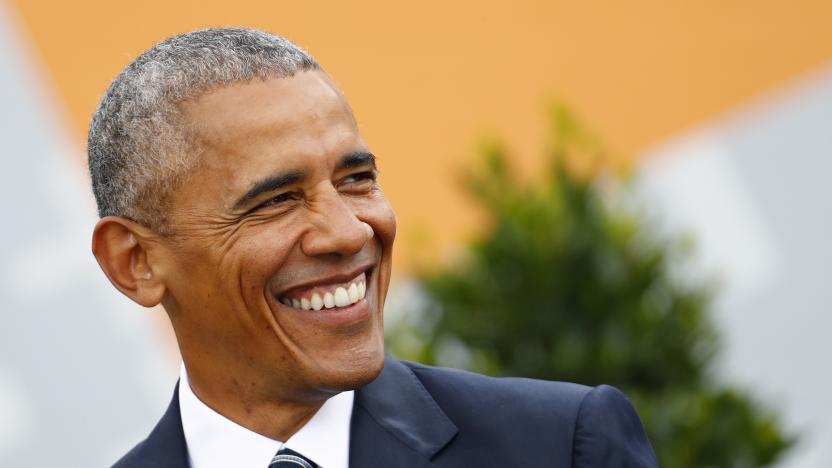
Report: Obama authorized a secret cyber operation against Russia
President Barack Obama learned of Russia's attempts to hack US election systems in early August 2016, and as intelligence mounted over the following months, the White House deployed secrecy protocols it hadn't used since the 2011 raid on Osama bin Laden's compound, according to a report by The Washington Post. Apparently, one of the covert programs Obama, the CIA, NSA and other intelligence groups eventually put together was a new kind of cyber operation that places remotely triggered "implants" in critical Russian networks, ready for the US to deploy in the event of a pre-emptive attack. The downed Russian networks "would cause them pain and discomfort," a former US official told The Post.
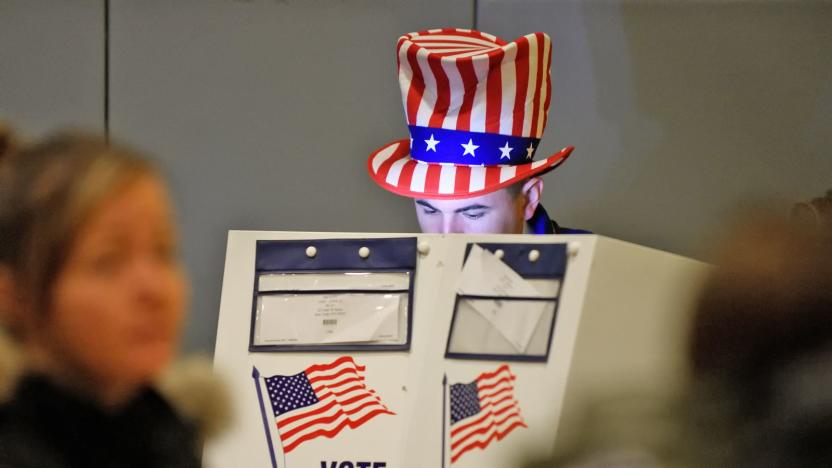
New York is reviewing its voting infrastructure to avoid hacks
Amid the growing investigation into Russia's interference in the US Presidential election, New York is taking the initiative to check whether anybody meddled with its voting machines. Governor Cuomo has tasked the state's Cyber Security Advisory Board to both investigate potential incursions and review the state's entire voting infrastructure to suss out weak points that hackers might attack in the future.
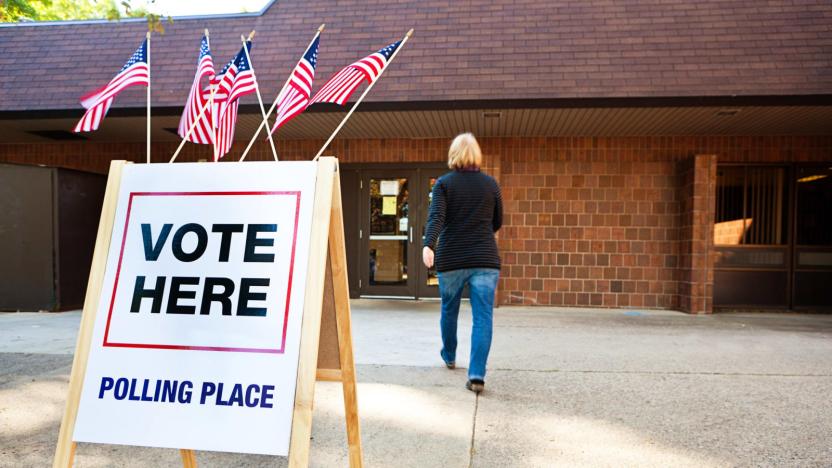
Russian intelligence agents targeted US voting-software company
Russia's military intelligence agency infiltrated a US voting-software company and conducted a phishing campaign targeting more than 100 local elections officials, according to top-secret National Security Agency documents published by The Intercept. The cyberattacks occurred in the months and days before the US presidential election in November. The US intelligence community concluded in January that top Russian authorities directed a hacking campaign against the US election infrastructure, including launching cyberattacks against the Democratic National Committee and the staff of candidate Hillary Clinton. The NSA documents published today offer a glimpse into how Russia actually attempted to infiltrate US elections systems, and what kind of information agents were interested in manipulating. The report does not state whether these attacks directly affected the results of the election.
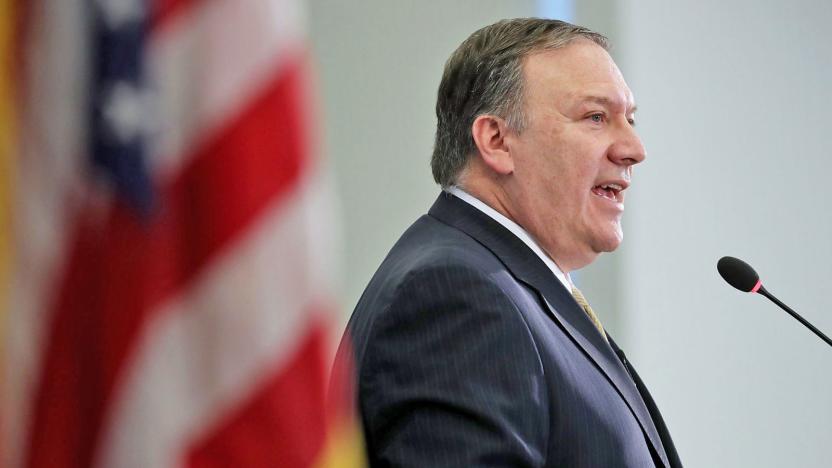
The new CIA head hates WikiLeaks (when convenient)
The new director of the CIA has come out swinging against WikiLeaks, calling the organization a "hostile intelligence service." In his first public speech, Mike Pompeo called Julian Assange a "narcissist who has created nothing of value," adding that he "relied upon the dirty work of others to make himself famous."
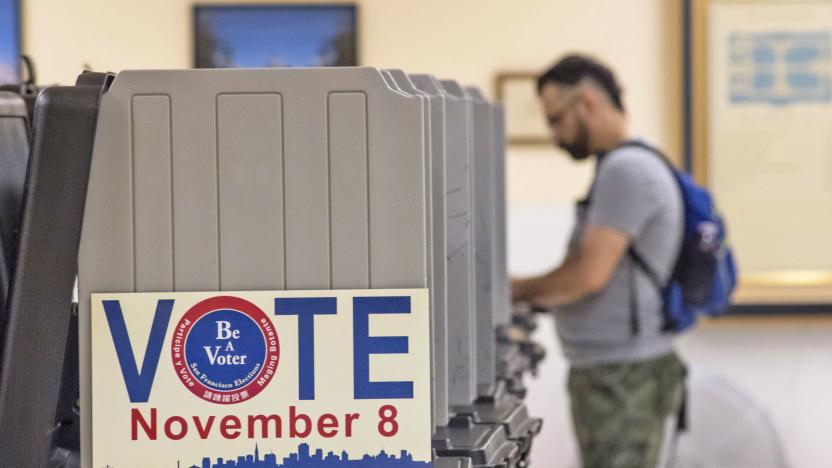
FBI has three probes looking into Russia's election hacking
It's no secret that the FBI has been investigating Russia's alleged bid to influence US elections through hacking, but it's now clear just how deep that investigation goes. Reuters tipsters understand that there are "at least" three FBI probes into the hacks, each of which focuses on a different aspect of the breaches targeting Democratic Party officials. A Pittsburgh field office wants to identify the people behind those intrusions, while a San Francisco office wants to identify the people behind "Guccifer 2.0," the persona credited with key leaks and frequently linked to the Russian government. A third investigation in Washington, DC is orchestrating a counterintelligence campaign based on intercepted foreign communications and tips from informants.
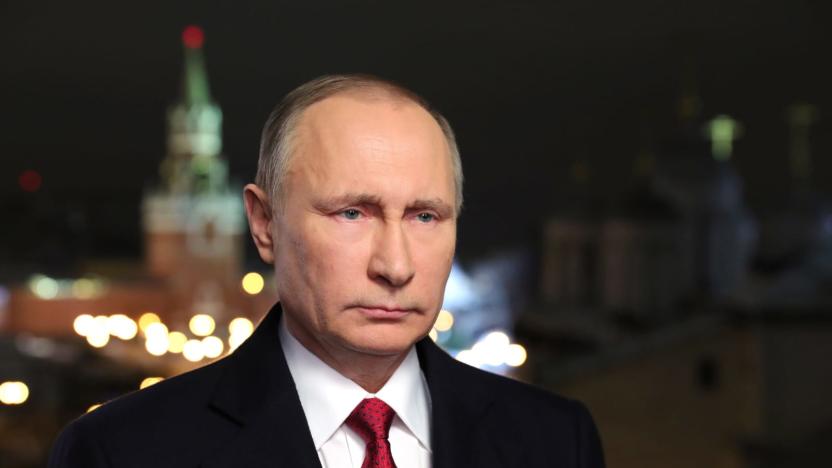
US intelligence releases report linking Russia to election hacks
As promised, the US intelligence community has released the public version of its report connecting the Russian government to election-oriented hacks... and it isn't pulling any punches. The findings directly accuse Russian President Vladimir Putin of ordering an "influence campaign" to destabilize the American vote, with hacks as a major component. The authoritarian leader wanted to both "undermine public faith" in the democratic process and "denigrate" Hillary Clinton to make sure that Russia's preferred candidate, Donald Trump, took office. Many of the unclassified details will seem familiar, but the US notes that its conclusions are drawn from both intelligence collected by the CIA, FBI and NSA as well as knowledge about both the Kremlin and the organizations it props up.
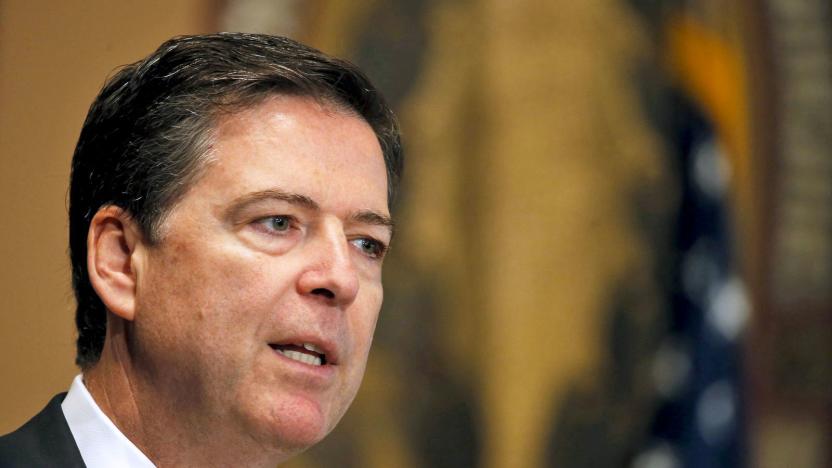
FBI says DNC wouldn't give it direct access to hacked servers
The FBI has spent months trying to persuade people that Russia was behind the DNC hack, but we're now learning that it didn't get much help from the DNC itself. The Bureau tells Buzzfeed News that the Democrats' organization reportedly "rebuffed" multiple requests for physical access to the hacked servers, forcing investigators to depend on the findings of the third-party security firm CrowdStrike (which the DNC contacted after the hack). The FBI would have tackled the breach earlier if the DNC hadn't "inhibited" the investigation, according to its statement.
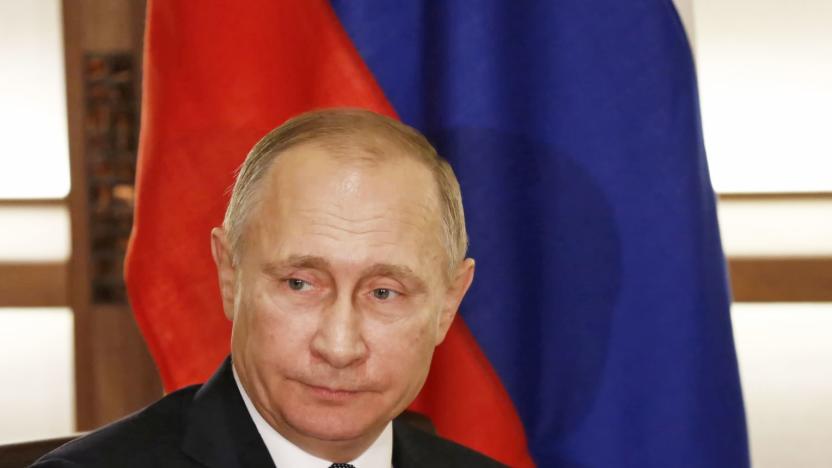
Obama administration says Putin orchestrated US election hacks
Russian president Vladimir Putin personally oversaw the cyber attacks on the United States' political infrastructure this year, White House press secretary Josh Earnest said today in a press conference attended by the AP. This follows yesterday's report from NBC News claiming US intelligence officials had evidence that Putin was involved in the hacks. The White House has not offered evidence for its claims, though intelligence officials first revealed Russia's involvement in the cyber attacks in October.
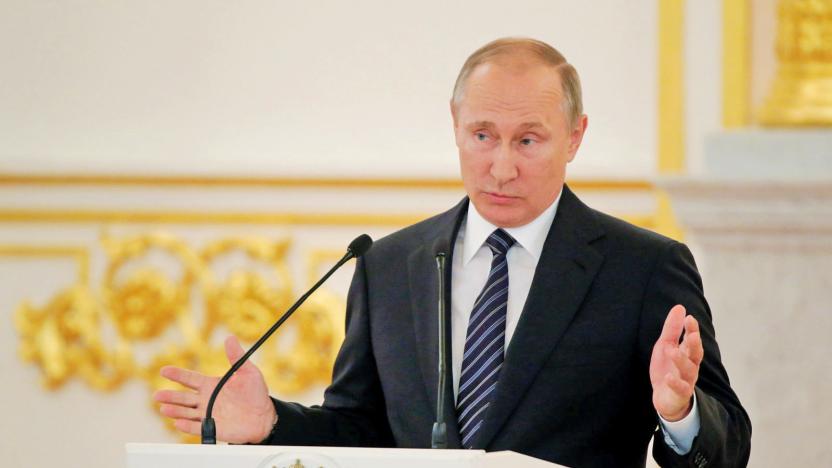
Obama opens investigation into cyber attacks on US election
President Barack Obama has ordered an investigation into cyber attacks and foreign influence during the 2016 US presidential election, Reuters reports. He's asking intelligence agencies to provide a report on the issue before he leaves office on January 20th, and the review will be shared with lawmakers and other stakeholders, homeland security adviser Lisa Monaco reportedly said. Monaco added that cyber attacks may have crossed a "new threshold" this year.

Trump subs in a YouTube address for a press conference
President-elect Donald Trump has made his first address regarding the state of his transition to President of the United States, via a YouTube video. While he presumably reads directly from a teleprompter, Trump lays out his plans for cyber security, among others: "I will ask the Department of Defense as well as the chairman of the Joint Chiefs of Staff to develop a comprehensive plan to protect America's vital infrastructure from cyberattacks as well as all other form of attacks." No other information about the plan was given beyond that.






